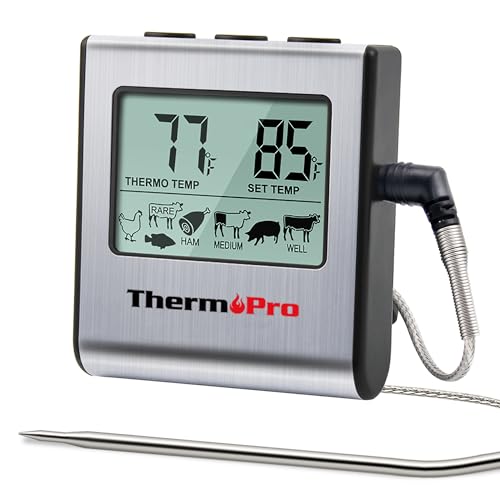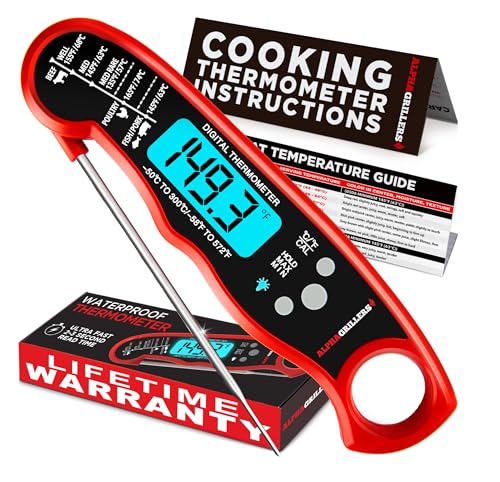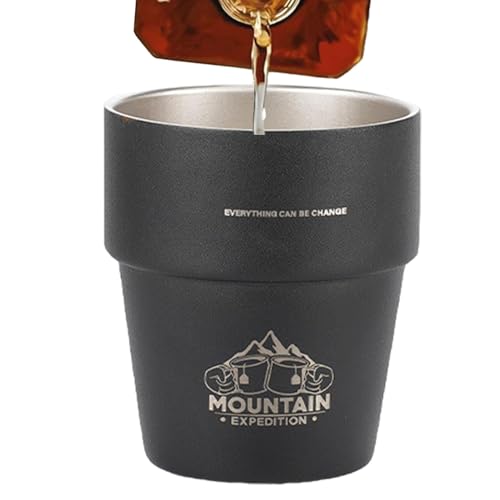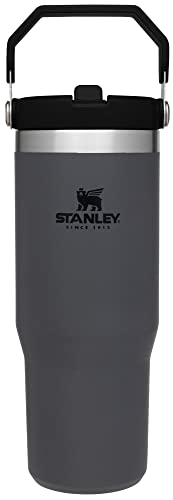As an Amazon Associate, I earn from qualifying purchases
To care for your cast iron skillet, clean it promptly after use and season it regularly. Always dry it completely to prevent rust.
A cast iron skillet is a kitchen essential known for its durability and versatility. Proper care ensures it lasts for generations. Cleaning it immediately after cooking prevents food from sticking and makes maintenance easier. Seasoning the skillet creates a natural non-stick surface and protects it from rust.
Drying it thoroughly is crucial to avoid moisture damage. By following these expert tips, your cast iron skillet will remain in top condition, providing excellent cooking performance and flavor. Investing a little time in its upkeep can yield great culinary results and a reliable cooking tool.
:max_bytes(150000):strip_icc()/best-cast-iron-cleaner-FT-BLOG0121-cda7da2d1da84795bffa60700bd4e526.jpg)
Credit: www.foodandwine.com
Introduction To Cast Iron Care
A cast iron skillet is a kitchen treasure. It can last generations. Proper care keeps it in top shape. Learn the basics of cast iron care here.
Why Cast Iron?
Cast iron is durable. It can handle high heat. You can use it on the stove, in the oven, and on the grill. It distributes heat evenly.
Cast iron improves with age. It develops a natural non-stick surface. This is called seasoning. It adds flavor to your food.
Benefits Of Proper Care
Proper care extends the life of your skillet. It prevents rust. Rust can damage the skillet. Seasoning the skillet keeps it non-stick. This makes cooking easier.
A well-cared-for skillet cooks food better. It heats evenly. It retains heat longer. This makes cooking more efficient.
| Benefit | Details |
|---|---|
| Durability | Lasts for generations with proper care. |
| Even Heating | Distributes heat evenly for better cooking. |
| Natural Non-Stick | Improves with seasoning over time. |
Follow these expert tips to keep your cast iron skillet in top shape. Your skillet will reward you with years of great cooking.
Seasoning Your Skillet
Seasoning your cast iron skillet is essential for its longevity and performance. This process not only creates a non-stick surface but also protects the skillet from rust. Follow these expert tips to keep your skillet in prime condition.
What Is Seasoning?
Seasoning is the process of applying a layer of oil to your cast iron skillet. This layer is then baked into the skillet, creating a natural, non-stick surface. This protective layer keeps the skillet from rusting and makes cooking easier.
Steps To Season Your Skillet
- Clean the Skillet: Wash the skillet with hot, soapy water. Use a scrub brush to remove any rust or debris. Dry the skillet completely with a towel.
- Apply Oil: Coat the skillet with a thin layer of vegetable oil. Ensure the entire surface is covered, including the handle.
- Bake the Skillet: Place the skillet upside down in the oven. Bake it at 375°F (190°C) for one hour. Put a sheet of aluminum foil on the lower rack to catch drips.
- Cool Down: Turn off the oven and let the skillet cool inside. This helps the oil bond to the skillet.
Repeat these steps periodically to maintain the seasoning. A well-seasoned skillet will have a shiny, black surface. This process ensures your cast iron skillet stays in excellent condition for many years.
Cleaning After Use
Cleaning your cast iron skillet after use is crucial. It ensures the longevity and performance of your skillet. Proper cleaning keeps your skillet non-stick and rust-free. Follow these expert tips to keep your cast iron in top shape.
Immediate Cleaning Tips
After cooking, let the skillet cool slightly. Then, use hot water and a sponge to clean it. Avoid using soap as it can strip the seasoning. If food is stuck, use a pan scraper or coarse salt. Rinse well and dry completely.
- Let the skillet cool a bit before cleaning.
- Use hot water and a sponge.
- Avoid soap to preserve the seasoning.
- Use a pan scraper for stuck food.
- Rinse well and dry thoroughly.
Avoiding Common Mistakes
Avoid soaking your cast iron skillet in water. This causes rust. Do not use the dishwasher, as it can damage the skillet. Refrain from using steel wool; it can strip the seasoning. Always dry the skillet immediately after washing. Store it in a dry place to prevent rust.
| Mistake | Effect |
|---|---|
| Soaking in water | Causes rust |
| Using the dishwasher | Damages the skillet |
| Using steel wool | Strips the seasoning |
| Not drying immediately | Leads to rust |
| Storing in a damp place | Encourages rust |
Follow these tips to keep your cast iron skillet clean and functional. Proper care ensures it lasts a lifetime.

Credit: www.bbcgoodfood.com
Dealing With Stubborn Residue
Dealing with stubborn residue on your cast iron skillet can be challenging. Proper cleaning methods are essential to maintain your skillet’s longevity. Here are expert tips to tackle tough residue effectively.
Using Salt Scrub
For stubborn residue, a salt scrub works wonders. Follow these steps:
- Heat the skillet slightly.
- Sprinkle a generous amount of coarse salt.
- Use a paper towel or a scrub brush to scrub the surface.
- Rinse with warm water and dry thoroughly.
The coarse salt acts as an abrasive, removing food particles without damaging the skillet. Always dry the skillet completely to prevent rust.
Boiling Water Method
The boiling water method is another effective way to remove tough residue:
- Fill the skillet with water.
- Place it on the stove and bring the water to a boil.
- Let it boil for a few minutes to loosen the residue.
- Use a spatula to scrape off the softened residue.
- Pour out the water and dry the skillet thoroughly.
This method is gentle and helps lift stubborn food particles without harsh scrubbing. Always remember to dry the skillet well to avoid rusting.
Preventing Rust
Taking care of your cast iron skillet is essential. One of the biggest challenges is preventing rust. Rust can ruin your skillet. This guide will show you how to keep your skillet rust-free.
Proper Drying Techniques
Proper drying is the first step to prevent rust. After washing, dry your skillet thoroughly.
- Use a clean towel to dry the skillet.
- Place the skillet on a stove burner on low heat.
- Heat for 5-10 minutes to remove any moisture.
Heating the skillet ensures no water is left. Moisture is rust’s best friend.
Storage Solutions
How you store your skillet matters. Proper storage prevents rust.
| Storage Method | Details |
|---|---|
| Hang It | Use a hook to hang your skillet. Hanging allows air to circulate. |
| Use a Paper Towel | Place a paper towel between stacked skillets. This absorbs any moisture. |
| Keep It Oiled | Apply a thin layer of oil before storing. Oil creates a barrier against moisture. |
Always choose a dry, cool place for storage. Avoid damp areas.
Restoring A Rusty Skillet
Cast iron skillets are durable, but they can rust without care. Don’t worry if your skillet has rust. You can restore it with a few simple steps. Follow these expert tips to make your skillet look new again.
Removing Rust
First, you need to remove the rust from your skillet. You’ll need some basic supplies:
- Steel wool or a stiff brush
- Warm water
- Dish soap
Follow these steps to remove rust:
- Scrub the skillet with steel wool and warm water.
- Use dish soap to help remove tough spots.
- Rinse the skillet with warm water.
- Dry the skillet completely with a clean towel.
Make sure every bit of rust is gone before moving on. A clean surface is key for the next step.
Re-seasoning Process
Once the rust is gone, it’s time to re-season your skillet. This process will protect your skillet and make it non-stick again. Here’s what you need:
- Vegetable oil or flaxseed oil
- Aluminum foil
- Oven
Follow these steps to re-season your skillet:
- Preheat your oven to 350°F (175°C).
- Coat the skillet with a thin layer of oil. Use a cloth or paper towel.
- Place the skillet upside down on the middle oven rack.
- Put a sheet of aluminum foil on the lower rack to catch drips.
- Bake the skillet for one hour.
- Turn off the oven and let the skillet cool inside.
After the skillet cools, it will be ready to use. Repeat this process if needed for a stronger seasoning layer.
Cooking Tips For Cast Iron
Using a cast iron skillet can elevate your cooking experience. It helps to understand the best practices for using it. These tips will guide you on what foods to cook and what to avoid.
Ideal Foods To Cook
Cast iron skillets are perfect for searing meats. They hold heat evenly. This helps in creating a perfect crust. You can also cook vegetables. They get a nice char and remain crisp.
Here are some ideal foods to cook in a cast iron skillet:
- Steaks: Achieve a beautiful sear and juicy interior.
- Chicken Thighs: Cook evenly with a crispy skin.
- Roasted Vegetables: Get a nice char and flavor.
- Fried Eggs: Non-stick surface makes flipping easy.
- Cornbread: Bakes with a golden crust.
These foods utilize the skillet’s heat retention and distribution properties. They make the most of your cooking efforts.
Avoiding Acidic Foods
Cast iron is reactive to acidic foods. Avoid cooking tomatoes, vinegar, or citrus in it. Acidic foods can strip the seasoning. This can lead to rust and a metallic taste.
Here is a quick list of foods to avoid:
- Tomato Sauce: High acidity can damage the skillet.
- Citrus-Based Dishes: Lemons and limes can corrode the surface.
- Vinegar: Strong acids can strip the seasoning layer.
If you need to cook these foods, consider using a different pan. This will help maintain your cast iron skillet’s quality and longevity.
Maintaining The Seasoning
Keeping your cast iron skillet well-seasoned is vital. It ensures a non-stick surface and prevents rust. Here are expert tips for maintaining the seasoning of your cast iron skillet.
Regular Oiling
Regular oiling keeps the skillet’s surface smooth. After each use, clean your skillet with warm water. Dry it thoroughly with a cloth or paper towel. Apply a thin layer of vegetable oil or canola oil. Use a cloth to spread the oil evenly across the surface.
Heat the skillet on the stove for a few minutes. This process helps the oil to bond with the iron. Repeat this oiling process every few uses to maintain the seasoning.
Avoiding Soap And Harsh Cleaners
Soap and harsh cleaners can strip away the seasoning. Instead, clean your skillet with warm water and a soft sponge. For stubborn food residue, use a paste made from coarse salt and water. Scrub gently with the salt paste, then rinse and dry the skillet.
Always avoid using dishwashers for cleaning your cast iron skillet. The high heat and detergents can damage the seasoning. Stick to gentle cleaning methods to keep your skillet in top condition.
| Task | Action |
|---|---|
| Post-Cooking Cleaning | Use warm water and a soft sponge |
| Removing Stubborn Residue | Scrub with a coarse salt paste |
| Drying the Skillet | Dry thoroughly with a cloth |
| Regular Oiling | Apply a thin layer of oil |
- Clean with warm water, not soap
- Dry immediately after washing
- Oil regularly to maintain seasoning
- Clean skillet with warm water
- Dry thoroughly with a cloth
- Apply a thin layer of oil
- Heat skillet to bond the oil
Follow these expert tips to keep your cast iron skillet well-seasoned and long-lasting.

Credit: southerncastiron.com
Frequently Asked Questions
How To Properly Take Care Of A Cast-iron Skillet?
To care for a cast-iron skillet, season it regularly. Always dry it thoroughly after washing. Avoid soap; use hot water and a scrub brush. Apply a thin layer of oil after each use. Store in a dry place to prevent rust.
Should I Oil My Cast-iron Skillet After Each Use?
Yes, you should oil your cast-iron skillet after each use. This helps prevent rust and maintain seasoning. Use a thin layer of vegetable oil.
How To Take Care Of Your Cast Iron Cookware And Make It Last Forever?
Clean with hot water and a stiff brush. Dry completely after washing. Apply a thin layer of oil. Store in a dry place. Avoid using soap.
What To Do After Every Use Of Cast-iron Skillet?
Clean the skillet with hot water and a sponge. Dry it thoroughly. Apply a thin layer of oil. Store in a dry place.
How Do You Season A Cast Iron Skillet?
Season a cast iron skillet by applying a thin layer of oil and baking it at 375°F for an hour.
How Often Should You Season Cast Iron?
Season your cast iron skillet every few months or when it starts to look dry and dull.
Can You Use Soap On Cast Iron?
Yes, you can use a small amount of mild soap. Rinse thoroughly and dry immediately to prevent rust.
How Do You Remove Rust From Cast Iron?
Scrub the rust with steel wool, rinse, dry, and re-season the skillet to restore its protective layer.
What Oil Is Best For Seasoning Cast Iron?
Use oils with high smoke points like flaxseed oil, grapeseed oil, or vegetable oil for best results.
Can You Cook Acidic Foods In Cast Iron?
Avoid cooking highly acidic foods like tomatoes frequently, as they can strip the seasoning over time.
Conclusion
Proper care keeps your cast iron skillet in top shape. Follow these expert tips for longevity and peak performance. Regular cleaning, seasoning, and storage ensure it remains a kitchen staple. Enjoy the benefits of a well-maintained skillet for years to come.
Happy cooking!
As an Amazon Associate, I earn from qualifying purchases













Leave a Reply